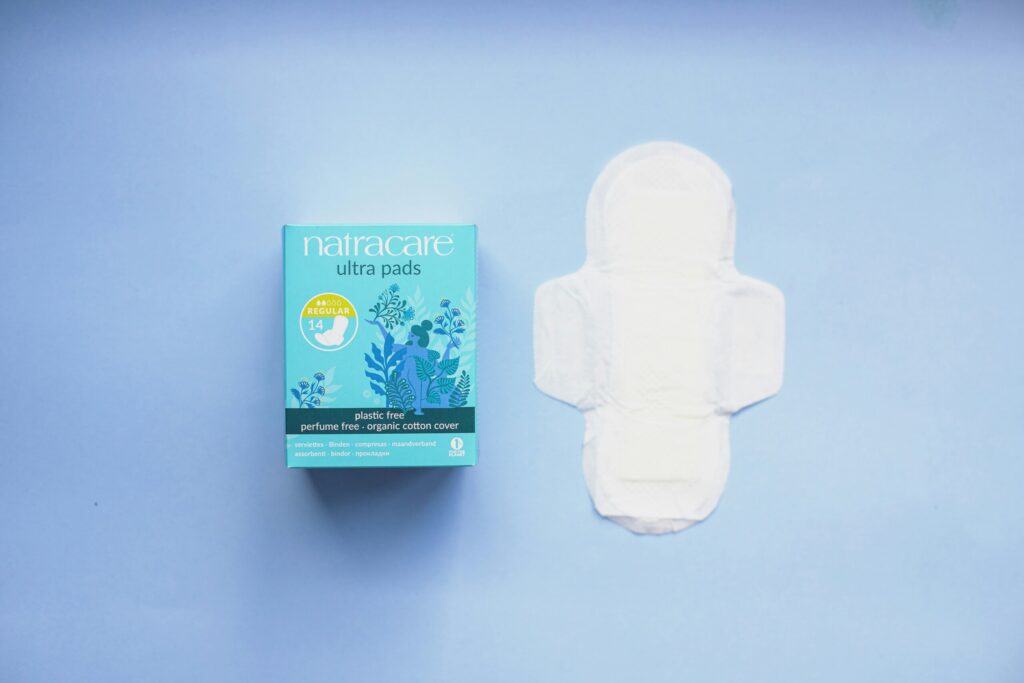When you have uterine fibroids, you may experience long, heavy periods. Changes in your cycle could even cause you to have two periods in a month (due to a shortened cycle, you may shed your uterine lining twice in a less-than 30 day time frame.) However, when trying to determine what’s affecting your cycle, spotting between cycles could be confused for the start or continuation of menstruation. So, how can you tell the difference between spotting vs period blood? Here’s what you need to know.

Spotting is simply light blood flow that comes from your vagina on days that aren’t part of your period. The key word here is “light;” if you’re spotting, you’re likely to only need a thin panty liner to prevent leaks, not a maxi pad or tampon. Many factors can cause spotting, including changes in your hormonal balance, ovulation, implantation bleeding and more.
The bleeding that occurs during your menstrual cycle is triggered by the shedding of your uterine lining. Throughout your cycle, the lining will build up in anticipation of pregnancy. But if you don’t conceive, that lining will shed at the end of the month, causing you to bleed for an average of seven to 10 days. During your period, your flow will be heavier, requiring the protection of a pad or tampon. Typically, flow is heaviest during the first few days, gradually lightening. However, if you have uterine fibroids, you may experience heavy bleeding throughout the cycle. Plus, bleeding may last for more than the typical time frame. And, if left untreated, these fibroid symptoms could lead to complications such as anemia, further impacting your quality of life.
It’s important to keep track of changes to your menstrual cycle, whether you’re experience spotting, having a long or heavy period, or simply noticing any kind of abnormal uterine bleeding (AUB.) While spotting or changes to your menstrual cycle could be harmless, they could also indicate the presence of underlying conditions. (Possible causes include side effects of hormonal birth control, imbalances in your hormones, thyroid conditions, uterine fibroids, endometriosis, polyps and more.) As such, any noticeable changes are worth discussing with your healthcare provider.
You are the best judge of what’s happening in your body. So if you notice any changes to your menstrual cycle, whether you’re trying to tell the difference between spotting vs period blood, or whether there’s a different shift in your monthly flow, it’s always worth talking to your doctor. This is the best way to detect any conditions that may be impacting your menstrual health, leading to prompt diagnoses and expanding your treatment options.
If uterine fibroids are the cause of changes to your menstrual cycle, our Houston experts are here to help. Offering Uterine Fibroid Embolization (UFE), a minimally invasive fibroid treatment, at each of our five area offices, we can shrink your tumors without surgery, mitigating your symptoms and improving your quality of life. Simply reach out to our team to request a consultation and determine if you’re a candidate for UFE in Houston!
As leading fibroid specialists in Houston, we can help you get back to doing the things you love – free of pain and symptoms associated with this diagnosis.

Scheduling
Please contact our dedicated specialists to schedule a consultation today.
2025 Houston Fibroids. All rights reserved. Website Design by Healthcare Success